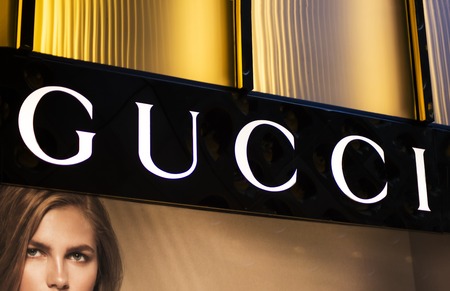 Branded apparel companies face many challenges in protecting their IP assets, including the unavailability of copyright protection for fashion designs, the length of time necessary to secure a design patent, the challenge of securing secondary meaning required for a trade dress claim before the market is flooded with knock-offs, and the geographic and practical impediments to pursuing counterfeiters, who are often foreign-based and/or judgment proof. Perhaps mindful of the limited statutory protections for IP assets and the significant damages being incurred at the hands of infringers, various courts, particularly in the Second and Ninth Circuits, have in recent years taken steps to enhance the alternatives available to apparel companies confronted by the scourge of knockoffs. Specifically, such court decisions have (1) expanded the scope of potential contributorily liable actors, and (2) broadened the means of freezing and attaching assets of foreign counterfeiters.
Branded apparel companies face many challenges in protecting their IP assets, including the unavailability of copyright protection for fashion designs, the length of time necessary to secure a design patent, the challenge of securing secondary meaning required for a trade dress claim before the market is flooded with knock-offs, and the geographic and practical impediments to pursuing counterfeiters, who are often foreign-based and/or judgment proof. Perhaps mindful of the limited statutory protections for IP assets and the significant damages being incurred at the hands of infringers, various courts, particularly in the Second and Ninth Circuits, have in recent years taken steps to enhance the alternatives available to apparel companies confronted by the scourge of knockoffs. Specifically, such court decisions have (1) expanded the scope of potential contributorily liable actors, and (2) broadened the means of freezing and attaching assets of foreign counterfeiters.
Expanding the Scope of Potentially Liable Actors
Rather than attempting to enforce a money judgment against a defendant who is judgment proof or located overseas, a more effective strategy may be to bring contributory infringement claims against the website(s) hosting the infringing goods or even credit card companies processing payments for the infringing goods.
For instance, in Gucci America, Inc. v. Frontline Processing Corp., 721 F.Supp.2d 228 (S.D.N.Y. 2010), Gucci prevailed against the defendant credit card processing companies’ motion to dismiss claims for contributory trademark infringement. The court found that the credit card companies met the test for contributory infringement, namely, that they either (1) intentionally induced the website to infringe by selling counterfeit goods, or (2) knew, or were willfully blind to the fact, that the Gucci-branded products on TheBagAddiction.com were counterfeit, and the service they provided gave them control and ability to monitor the unlawful activity.
The court found that one company had intentionally induced trademark infringement because it promoted itself to “high risk merchant accounts,” including those that sell “replica products,” and boasted that 95% of merchant accounts are approved.
The court further found that all three defendant credit card companies could be liable for contributory trademark infringement under the second test set out above. Evidence of their knowledge or willful blindness included that they set up a system to avoid chargebacks, which required customers to check a box that said, “I understand these are replicas,” and made suggestions about where to put this warning on the consumer-facing website. 721 F. Supp. 2d at 249. In addition, when faced with a chargeback, they received a specific description of the items ordered.
Finally, the credit card companies exercised control over the infringement because they provided an essential step given that TheBagAddiction.com could not have operated otherwise. In support of its conclusion, the court pointed to evidence that 99% of consumers on TheBagAddiction.com purchased their orders using credit cards. It explicitly rejected the credit card companies’ argument that they lacked control because they did not have the power to shut down the website.
This analysis is in contrast to the Ninth Circuit’s earlier decision in Perfect 10, Inc. v. Visa Intern. Service Ass’n, 494 F.3d 788 (9th Cir. 2007), where the court upheld the district court’s dismissal of Perfect 10’s contributory and vicarious liability claims against Visa, finding that “[a]t most, Perfect 10 alleges that [d]efendants can choose to stop processing payments to these websites, and that this refusal might have the practical effect of stopping or reducing the infringing activity. This, without more, does not constitute ‘direct control.’” Id.
Shortly after the Gucci America decision, a court in the Central District of California found two offshore internet companies liable for contributory infringement for hosting counterfeit content. In Chloe SAS et al v. Sawabeh Information Services Co., No. CV 11-04147 GAF (MANx), 2013 WL 12126742 (C.D. Cal. Oct. 8, 2013), the court granted partial summary judgment for the plaintiffs against the internet company defendants, finding no material question of fact that the counterfeit goods were sold through the defendants’ websites and that they actively promoted and facilitated the sale of such goods. Evidence included the fact that the defendants maintained “Replica Products” and “Replica Retention” sales divisions and that an employee of one company represented to the plaintiffs’ investigator that “counterfeiting is one of the two biggest industries featured” on that website. Id. at *2. The court further found that the defendants exercised control over the infringing activity because they “prevent members from making any changes to listings” and “choose[] and add[] keywords to premium members’ products which drives the search engine optimization of these listings.” Id. at *6.
By enlarging the scope of parties who may be contributorily liable for infringement to include credit card processing companies and web hosts, among others, the Court provided recourse to trademark owners whose valuable IP had been infringed and offered a powerful disincentive to companies that may seek to trade off of and profit from this illicit conduct.
Expanding Access to Counterfeiters’ Assets
In recent years, several courts have also displayed a willingness to freeze or attach foreign counterfeiting defendants’ accounts with companies with branches located in the U.S. For instance, in Tory Burch v. Yong Sheng Int’l Trade Co. Ltd., No. 10 Civ. 9336 (DAB), 2011 WL 13042618 (S.D.N.Y. May 13, 2011), luxury brand Tory Burch obtained a permanent injunction and judgment of $4 million against each of 41 companies in China selling knock-offs of its products. Following the entry of a default judgment and permanent injunction, the court froze the defendants’ Pay Pal accounts and released those sums to Tory Burch.
Similarly, in Balenciaga America, Inc. v. Dollinger, No. 10 Civ. 2912 (LTS), 2010 WL 3952850 (S.D.N.Y. Oct. 8, 2010), Balenciaga and other luxury brands obtained a preliminary injunction freezing bank accounts belonging to individuals selling counterfeit copies of the plaintiffs’ products, including some located overseas. The court held that because it had jurisdiction over the defendants pursuant to New York’s long arm statute, N.Y.C.P.L.R. §302(a), it had the authority to freeze the defendants’ assets, regardless of the location of those assets. Id. at *8.
Likewise, in Gucci Am., Inc. v. Weixing Li, Gucci and other trademark holders sued online counterfeiters in June 2010. In July 2010, the plaintiffs obtained an asset freeze order, which they served upon the Bank of China (the “Bank”), among others, obligating the Bank to freeze all activity in the defendants’ bank accounts, including those located in China. The Bank appealed to the Second Circuit, arguing that the district court lacked authority to issue the asset freeze injunction because it lacked personal jurisdiction over the Bank. The Second Circuit rejected this claim, finding that “personal jurisdiction over the defendants, not the Bank, is all that was needed for the district court to restrain the defendants’ assets pending trial.” 768 F.3d 122, 129 (2d Cir. 2014) (emphasis in the original). However, the court found that the district court did need personal jurisdiction over the Bank to enforce the asset freeze injunction against it, and remanded to the district court to determine whether it had such jurisdiction. Id. at 134.
On remand, the district court found that it did have personal jurisdiction over the Bank because its New York branches are used to transfer what Gucci alleged are ill-gotten gains from the U.S. to China. 135 F. Supp. 3d 87, 94 (S.D.N.Y. 2015), appeal withdrawn (Feb. 16, 2016). In an interesting postscript, due to the Bank’s refusal to comply with the asset freeze injunction as well as plaintiff’s subpoena requesting information concerning the defendants’ accounts, on December 1, 2015, the district court held the Bank in civil contempt and ordered it to pay the court a coercive fine of $50,000 a day beginning on December 7, 2015 for each subsequent day of noncompliance.
Alternatives to Filing Suit: Partnering with Websites to Eliminate Counterfeit Goods
While these Court rulings have added to the arsenal of alternatives available to branded apparel companies, these entities continue to explore other avenues to protect their IP, including preemptive agreements with leading websites. For example, in 2015, Kering, the corporate owner of luxury brands Gucci and Yves Saint Laurent, among others, sued the notorious website Alibaba for contributory trademark infringement (no doubt emboldened by decisions like those referenced above) due to the prevalence of counterfeits on its service, along with the individual sellers. After protracted negotiations between Kering and Alibaba, the two entities ultimately reached a settlement. According to recent press coverage, the two companies are partnering to use Alibaba’s increasingly sophisticated technology to locate counterfeits on its websites. Paul Mozur, Fight Against Fakes, Alibaba and Owner Gucci Go from Adversaries to Partners, New York Times, Aug. 3, 2017. Alibaba stated that its systems can currently scan 10 million product listings a day. Id.
Alibaba is resolved to have itself removed from the list of “notorious markets” for counterfeit goods maintained by the Office of the United States Trade Representative, id., making this a prime moment for luxury brands to approach Alibaba with potential partnership offers.

![[IPWatchdog Logo]](https://ipwatchdog.com/wp-content/themes/IPWatchdog%20-%202023/assets/images/temp/logo-small@2x.png)


![[Advertisement]](https://ipwatchdog.com/wp-content/uploads/2024/04/Patent-Litigation-Masters-2024-sidebar-early-bird-ends-Apr-21-last-chance-700x500-1.jpg)

![[Advertisement]](https://ipwatchdog.com/wp-content/uploads/2021/12/WEBINAR-336-x-280-px.png)
![[Advertisement]](https://ipwatchdog.com/wp-content/uploads/2021/12/2021-Patent-Practice-on-Demand-recorded-Feb-2021-336-x-280.jpg)
![[Advertisement]](https://ipwatchdog.com/wp-content/uploads/2021/12/Ad-4-The-Invent-Patent-System™.png)







Join the Discussion
No comments yet.